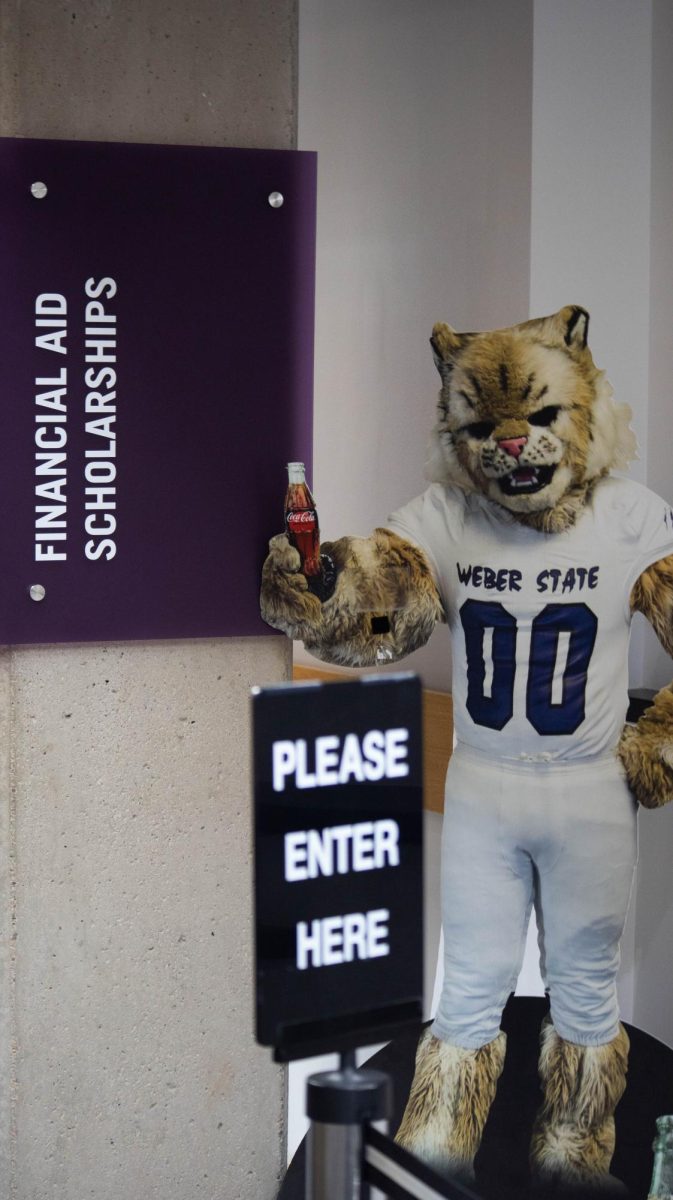No matter what your major is, chances are that you’re going to have to write for it. Not only do your generals require you take at least one English class, many classes require some degree of competence in stringing words together.
Seriously. I can’t tell you exactly how many papers I wrote for my nursing classes, but there were a lot.
Located on the ground floor of Elizabeth Hall, the Weber State University Writing Center is open to any student with a ‘W’ number (tip: have it handy). No, you don’t have to pay, and you can come in as many times as you need. Sessions are face-to-face, or, if you live far from campus or have a tight schedule, you can take advantage of the online synchronous and asynchronous sessions.
For all incoming freshmen (and the rest of you who have been here a little longer), here are some key points from the keyboard of a former Writing Center tutor about your Writing Center and how it can assist you in becoming a better student.
— If you have a ‘W’ number, you can use the Writing Center. Seriously, that’s just about the only requirement.
— It doesn’t have to be an English paper. There were some days when I tutored a dozen papers and never saw a single one from an English class. Some students bring in research summaries, graduate school applications, resumes, cover letters and scholarship essays. If it’s writing, then bring it in. I even saw fellow nursing majors pop in, and I’ve seen papers from almost all departments, art, music and the various sciences included. Or maybe you don’t know where to start. Maybe you need to know how to draft an essay or write a thesis. That’s fair game. Writing is a process, and the tutors are there to guide you through every step of it.
— Students of any writing skill level can benefit. I think sometimes students might feel wary of going in to get tutoring at any of the campus tutoring centers, because . . . it’s tutoring! Some may believe that tutoring means you aren’t smart enough to do it on your own, which is totally not true, so please don’t spread that sad thought.
No matter how well you write, your brain tries to be smarter than your fingers, and it will make mistakes that often take another set of eyes to see. Don’t run the risk of sending in a resume with your name in big, bold letters at the top . . . and spelled wrong. Having been on the hiring side of the table, I’ve seen it happen (she still got the job, but we haven’t let her live it down). And there’s nothing quite like mixing up one word for an entirely different and slightly inappropriate one in your final essay.
— The tutors won’t fix your paper for you. The point of the Writing Center is not to fix your paper; it’s to help guide you in such a way that you’ll not only be able to pinpoint problems in the writing you’ve brought, but also find them in the writing you have yet to write. It’s like that old saying goes — give a man a fish and he’ll eat for a day, or teach a man to fish and he’ll eat for a lifetime. Writing is a skill necessary for your lifetime. Knowing how to write well is the difference between “let’s eat Grandpa!” and “let’s eat, Grandpa!” (thanks to comma rules, one of those involves cannibalism).
— Don’t wait for the last minute. In classes where you’re required to take in your paper, remember that there are often 30 other students with the same assignment. Sometimes, there’s more than one class. No matter how good the tutors are, 60 or more students trying to come in during the same eight-hour period isn’t fun. This applies to finals and midterms, too. The Writing Center is there to support you, but you need to do what you can to support yourself.
Tutoring is just another of many resources at Weber here to help you be the best student you can be. Take advantage of them! I mean, why not, right?



















